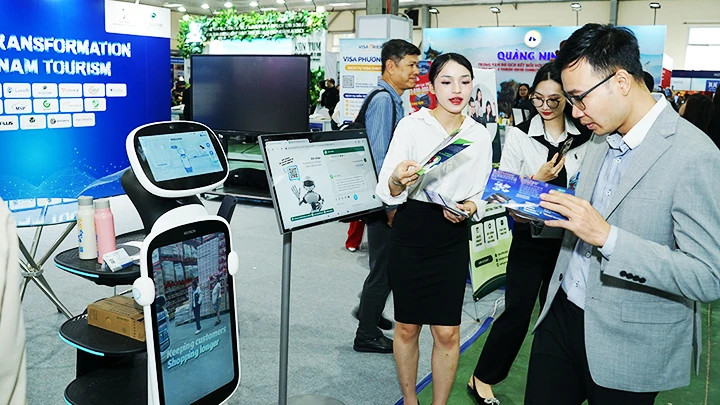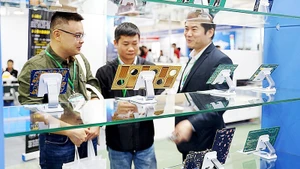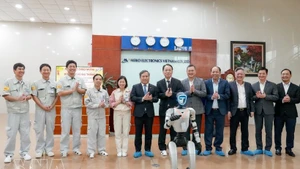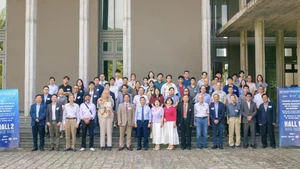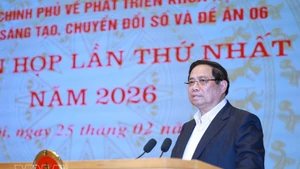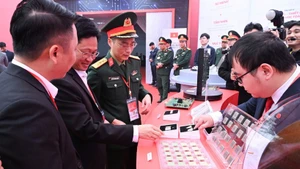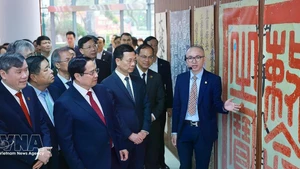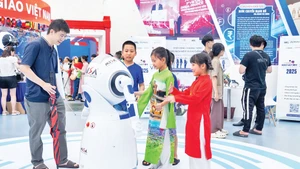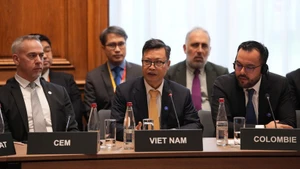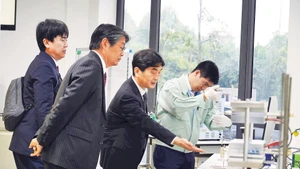Viet Nam’s AI market waits for a breakthrough
One of the typical examples of this innovative spirit is Dr. Nguyen Tuan Nghia, General Director of ANSCenter. Together with a team of colleagues from Australia, he brought to Viet Nam an advanced multi-tasking AI integration system, pre-designed with 20 powerful tasks, but at the same time creating a space for users to freely build and embed additional personalised models according to actual needs. With a vibrant developing market like Vietnam, Dr. Nghia hopes that the system will soon be widely accepted by domestic enterprises.
After more than a year of operating in Viet Nam, ANSCenter’s efforts to develop the AI market have reaped many positive results. According to Dr. Nghia, Vietnamese enterprises are very open to accessing new technologies, especially “imported” solutions that are capable of integrating well with domestic conditions.
He also pointed out that Vietnamese technology companies have gone through a long period of outsourcing products to foreign countries, thereby accumulating experience and realising the ability to develop solutions with Vietnamese brands. This is a solid foundation for AI to gradually “localise” and directly serve the development of domestic enterprises.
Not only startups, but also large technology corporations in Viet Nam are actively participating. Le Hong Viet, General Director of FPT Smart Cloud, said that after the explosion of ChatGPT, Generative AI (Gen AI) has quickly entered life, effectively supporting automation processes and increasing practical value for businesses.
“Gen AI has contributed to blurring the boundaries of technology, making AI easier to use for everyone from programmers, independent developers to small and medium enterprises. That opens up great opportunities for innovation in Viet Nam,” Viet commented.
However, he also believes that to truly reach new heights, the Vietnamese AI market needs systematic pushes. There are currently many efforts from businesses to build core technologies, but highly popular applications that can comprehensively change the market are still rare.
Only with breakthrough products can the Vietnamese AI market strongly attract investment capital and high-quality resources from both domestic and foreign countries. However, along with the impressive growth rate, the big question for Vietnam is: How to develop AI in a sustainable and responsible manner?
According to the Government AI Readiness Index 2024 report published by Oxford Insights, Viet Nam ranked 59th out of 193 countries and territories, with a total score of 54.48. In the East Asia region, Viet Nam ranked 9th and ranked 5th out of 10 ASEAN countries, after Singapore, Malaysia, Thailand and Indonesia. Notably, Viet Nam’s ranking has improved significantly in recent years: from 76th in 2020, to 62nd in 2021, 55th in 2022, and 59th in 2023.
Towards responsible AI
In response to the above question, Associate Professor, Dr. Dinh Ngoc Minh, lecturer at the Faculty of Engineering Technology at RMIT University, said that Viet Nam needs to pay special attention to two aspects: social benefits and investment in data infrastructure.
Specifically, AI applications must bring benefits not only to businesses but also to the community. This means that AI needs to be developed in an ethical and responsible direction. If not properly oriented, AI can be abused or misled, creating long-term consequences for society.
Viet Nam has now taken an important step in building an ethical framework for AI. The guidelines on responsible AI system development issued by the Ministry of Science and Technology include nine core principles such as transparency, safety, privacy, accountability, and especially respect for human dignity. However, it is important that these principles are widely disseminated in the business community and society, not just limited to policy.
In addition, Minh believed that investing heavily in data infrastructure and processing capacity is extremely important. Because in developed countries such as the US, China or Europe, the government and businesses have invested in supercomputers and data storage systems, the foundation for developing core AI technology.
Meanwhile, in Viet Nam, although many large enterprises have made significant investments, they are still fragmented and mainly serve internal goals. Therefore, it is necessary to build a flexible enough institution to attract private investment in line with the general direction of the Government, in which there needs to be an effective coordination mechanism between businesses, research institutes, universities and domestic and foreign experts. Therefore, there needs to be a national agenda on AI, linked to Resolution No. 57 on digital transformation and innovation.
According to Minh, Gen AI is a technology that is changing the way content is created, and can have a profound impact on culture and social awareness. Accordingly, Viet Nam needs to orient the development of Gen AI in accordance with its own cultural and political values, thereby contributing to protecting identity and enhancing technological competitiveness in the international arena.
Currently, the idea of “technology for people” is no longer a slogan. The United Nations Human Development Report 2025 has clearly stated: the impact of AI on human happiness depends on policies, ethical standards and common actions of the whole society.
Le Hong Viet, General Director of FPT Smart Cloud, also affirmed that AI must serve people first for prosperity, happiness and inclusive development between regions, because technology is only meaningful when it brings fairness, not creating new gaps. To do that, FPT Smart Cloud is promoting cooperation with universities and research centers to form an effective and long-term AI development ecosystem.
In short, Viet Nam is facing a golden opportunity to make a breakthrough in the field of AI. However, to turn potential into reality, it is necessary to have the support of the entire ecosystem, from national policies, businesses, institutes, schools to the social community. AI cannot develop sustainably without responsibility, ethics and a clear humanistic orientation. Technology is the tool, people are the goal to aim for.
